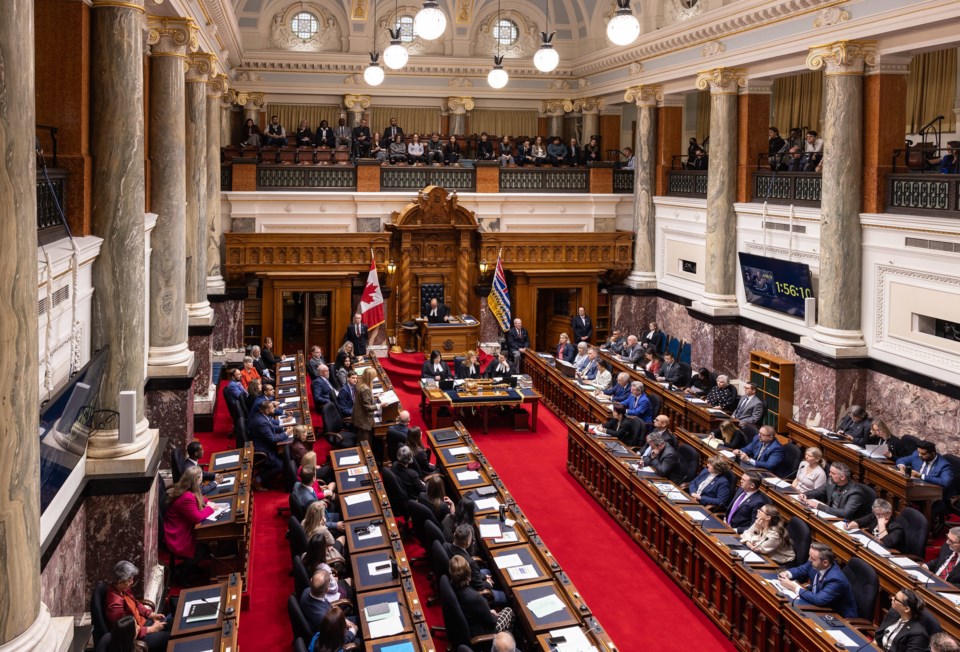I was recently shocked to read that some school bus drivers in Vancouver will be getting a wage cut to levels that don’t meet the living wage.
This shift is indicative of a concerning trend towards inequality that’s growing in our society and is even affecting our politicians. With more and more money flowing to the very wealthy, there seems to be less and less to cover basic needs, but with the economic roller coaster we’ve been on recently, it’s unlikely we will be focused in the right place to make meaningful movement on inequality.
Some Vancouver School Board staff members, like school bus drivers and attendants will have their pay cut as much as 23 per cent, The Vancouver Sun reported, after receiving an email outlining the change.
The living wage is the hourly rate a worker needs to earn to pay for the basic essentials like rent and food and sits at $27.05 per hour in Metro Vancouver, which includes Richmond. The VSB became a living-wage employer in 2022.
Living Wage B.C. said those employees’ pay will be dropping from $25.68 (the Living Wage in 2023) to $19.65 an hour.
An email to the Richmond School District to check if it is a living wage employer did not receive a response, however the school district is not included on the list of living wage employers on Living Wage B.C.’s website. A search for the word Richmond on their list shows only the Richmond Food Bank as a living wage employer.
Vancouver school district finance committee documents say the change is partly due to “significant annual variations” in the living wage benchmark. Anyone who has bought groceries or tried to rent a home in the past couple of years can explain those “variations.” The cost of living is out of hand and certainly out of pace with normal wage increases.
The living wage even surpasses the wage rate in one category in one VSB collective agreement, which the document says can only be negotiated through collective bargaining. It also notes that contractors will not be paid enough to ensure their employees receive living wages, but the district will “encourage” contractors to pay living wages.
Meanwhile, B.C. Conservative Leader John Rustad says provincially elected Members of the Legislative Assembly (MLAs) need to be paid more. Their annual salary is $119,532 and many members also receive supplements for additional positions, the province says. That’s about $61.30 per hour, or more than double the living wage, but without any supplements, it’s still not a massive salary. They didn’t take a previously scheduled raise on April 1.
It’s shocking that these discussions are even necessary. That a top-notch employer like the Vancouver School Board has employees who are not paid enough per hour to meet the basics of life – rent and food – should not be the case. That our publicly elected representatives aren’t paid well enough to attract quality candidates isn’t right.
“You pay peanuts, you get monkeys,” Rustad told the Globe and Mail.
While I don’t think $119,000 is exactly peanuts and I’d rather see the lower-paid bus drivers who are taking care of children get a raise before the higher-paid politicians, I can see his point.
But I can also see the link between rising wages and inflation. And I do get it – school boards are subject to provincial funding and cannot run deficit budgets, and the province is constrained due to the economic havoc being created by our neighbours to the south. There simply isn’t enough money to go around.
But meanwhile, the billionaires get richer. There’s plenty of money for those who already don’t have enough, but not enough for those who live paycheque to paycheque. As Shakespeare wrote, “Something is rotten in the state of Denmark.”
We’ve to figure out what that is and make a shift before inequality gets any worse.
“Inequality threatens long-term social and economic development, harms poverty reduction and destroys people’s sense of fulfillment and self-worth. This, in turn, can breed crime, disease and environmental degradation,” the United Nations Sustainable Development Goals website says.
We are already seeing these effects around us.
“Reducing inequality requires transformative change,” the UNSDG website says.
That change would include eradicating extreme poverty and hunger and investing more in health, education, social protection and decent jobs, they advise. Decent jobs would be those that pay a living wage, I would imagine.
Tracy Sherlock is a freelance journalist who writes about education and social issues. Read her blog or email her [email protected].
📣 Got an opinion on this story or any others in Richmond? Send us a letter or email your thoughts or story tips to [email protected].
📲 To stay updated on Richmond news, sign up for our daily headline newsletter.
💬 Words missing in article? Your adblocker might be preventing hyperlinked text from appearing.



